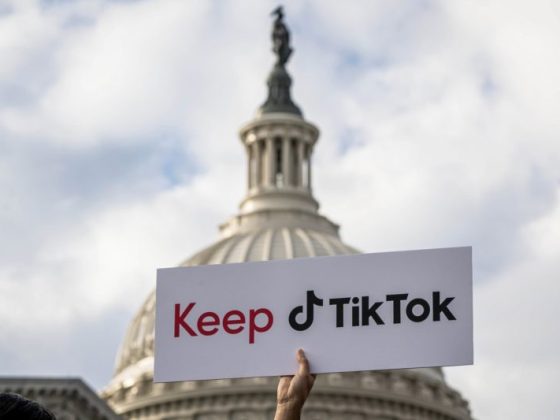 South Africa’s democratic system is approaching its 30th anniversary, representing a significant milestone since its transition from apartheid. However, the country is facing a silent crisis that endangers the progress it has achieved over these years.
One of the primary threats is the persisting socio-economic disparities. Despite the abolishment of apartheid, inequality is still prevalent in South Africa, with a significant wealth gap between the rich and the poor. Additionally, racial disparities persist, with a disproportionate number of the country’s black population living in poverty.
Another critical issue is corruption, which has deeply infiltrated the highest levels of government. The state capture scandal involving former president Jacob Zuma is a clear example of this widespread issue.
Furthermore, South Africa deals with persistent violence and crime. The high rates of homicide and gender-based violence are a cause of great concern and a significant threat to social stability.
Lastly, political instability and weakened institutions also pose a significant threat to South Africa’s democracy. Increased factionalism within the ruling African National Congress (ANC) has led to political uncertainty, undermining public trust in the government and its institutions.
All of these issues if not addressed, are significant enough to destabilize South Africa’s young democracy and undo its hard-won gains. As such, it’s crucial that South Africa address these issues head-on to safeguard its democratic gains and ensure a stable and prosperous future.
South Africa’s democratic system is approaching its 30th anniversary, representing a significant milestone since its transition from apartheid. However, the country is facing a silent crisis that endangers the progress it has achieved over these years.
One of the primary threats is the persisting socio-economic disparities. Despite the abolishment of apartheid, inequality is still prevalent in South Africa, with a significant wealth gap between the rich and the poor. Additionally, racial disparities persist, with a disproportionate number of the country’s black population living in poverty.
Another critical issue is corruption, which has deeply infiltrated the highest levels of government. The state capture scandal involving former president Jacob Zuma is a clear example of this widespread issue.
Furthermore, South Africa deals with persistent violence and crime. The high rates of homicide and gender-based violence are a cause of great concern and a significant threat to social stability.
Lastly, political instability and weakened institutions also pose a significant threat to South Africa’s democracy. Increased factionalism within the ruling African National Congress (ANC) has led to political uncertainty, undermining public trust in the government and its institutions.
All of these issues if not addressed, are significant enough to destabilize South Africa’s young democracy and undo its hard-won gains. As such, it’s crucial that South Africa address these issues head-on to safeguard its democratic gains and ensure a stable and prosperous future.
South Africa’s democracy is turning 30 – but a silent crisis threatens its hard-fought gains

 South Africa’s democratic system is approaching its 30th anniversary, representing a significant milestone since its transition from apartheid. However, the country is facing a silent crisis that endangers the progress it has achieved over these years.
One of the primary threats is the persisting socio-economic disparities. Despite the abolishment of apartheid, inequality is still prevalent in South Africa, with a significant wealth gap between the rich and the poor. Additionally, racial disparities persist, with a disproportionate number of the country’s black population living in poverty.
Another critical issue is corruption, which has deeply infiltrated the highest levels of government. The state capture scandal involving former president Jacob Zuma is a clear example of this widespread issue.
Furthermore, South Africa deals with persistent violence and crime. The high rates of homicide and gender-based violence are a cause of great concern and a significant threat to social stability.
Lastly, political instability and weakened institutions also pose a significant threat to South Africa’s democracy. Increased factionalism within the ruling African National Congress (ANC) has led to political uncertainty, undermining public trust in the government and its institutions.
All of these issues if not addressed, are significant enough to destabilize South Africa’s young democracy and undo its hard-won gains. As such, it’s crucial that South Africa address these issues head-on to safeguard its democratic gains and ensure a stable and prosperous future.
South Africa’s democratic system is approaching its 30th anniversary, representing a significant milestone since its transition from apartheid. However, the country is facing a silent crisis that endangers the progress it has achieved over these years.
One of the primary threats is the persisting socio-economic disparities. Despite the abolishment of apartheid, inequality is still prevalent in South Africa, with a significant wealth gap between the rich and the poor. Additionally, racial disparities persist, with a disproportionate number of the country’s black population living in poverty.
Another critical issue is corruption, which has deeply infiltrated the highest levels of government. The state capture scandal involving former president Jacob Zuma is a clear example of this widespread issue.
Furthermore, South Africa deals with persistent violence and crime. The high rates of homicide and gender-based violence are a cause of great concern and a significant threat to social stability.
Lastly, political instability and weakened institutions also pose a significant threat to South Africa’s democracy. Increased factionalism within the ruling African National Congress (ANC) has led to political uncertainty, undermining public trust in the government and its institutions.
All of these issues if not addressed, are significant enough to destabilize South Africa’s young democracy and undo its hard-won gains. As such, it’s crucial that South Africa address these issues head-on to safeguard its democratic gains and ensure a stable and prosperous future.

